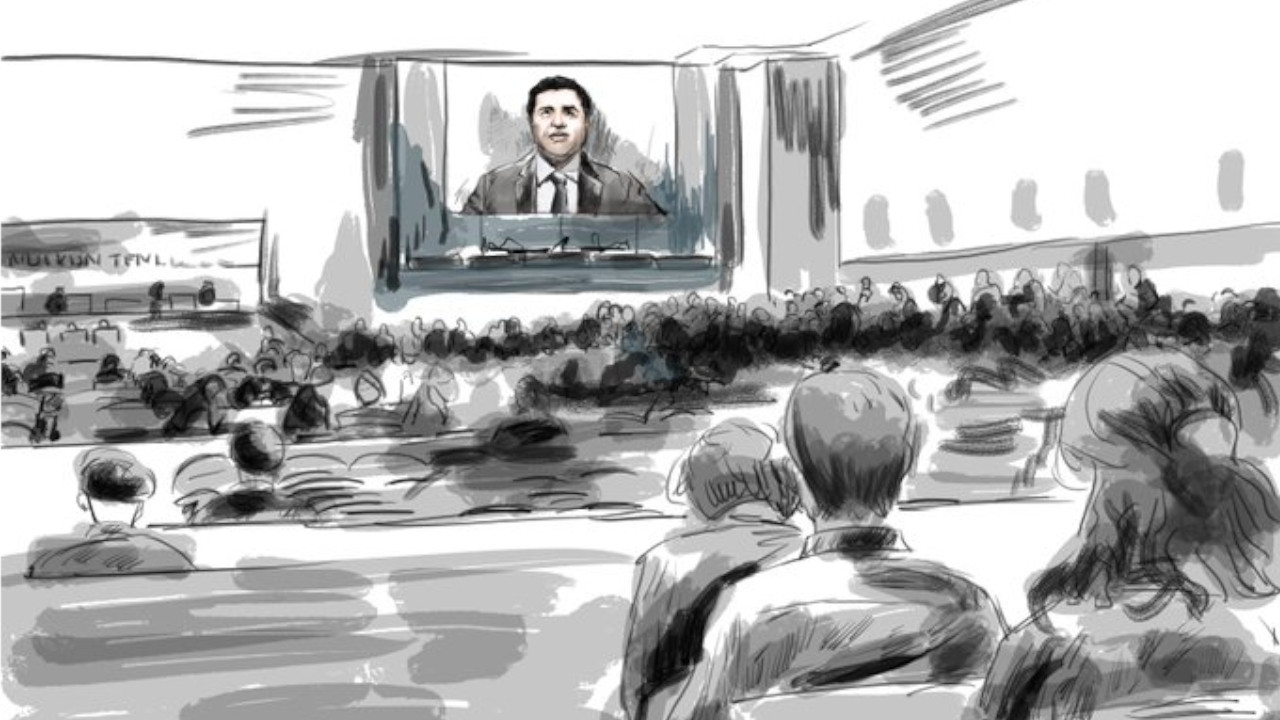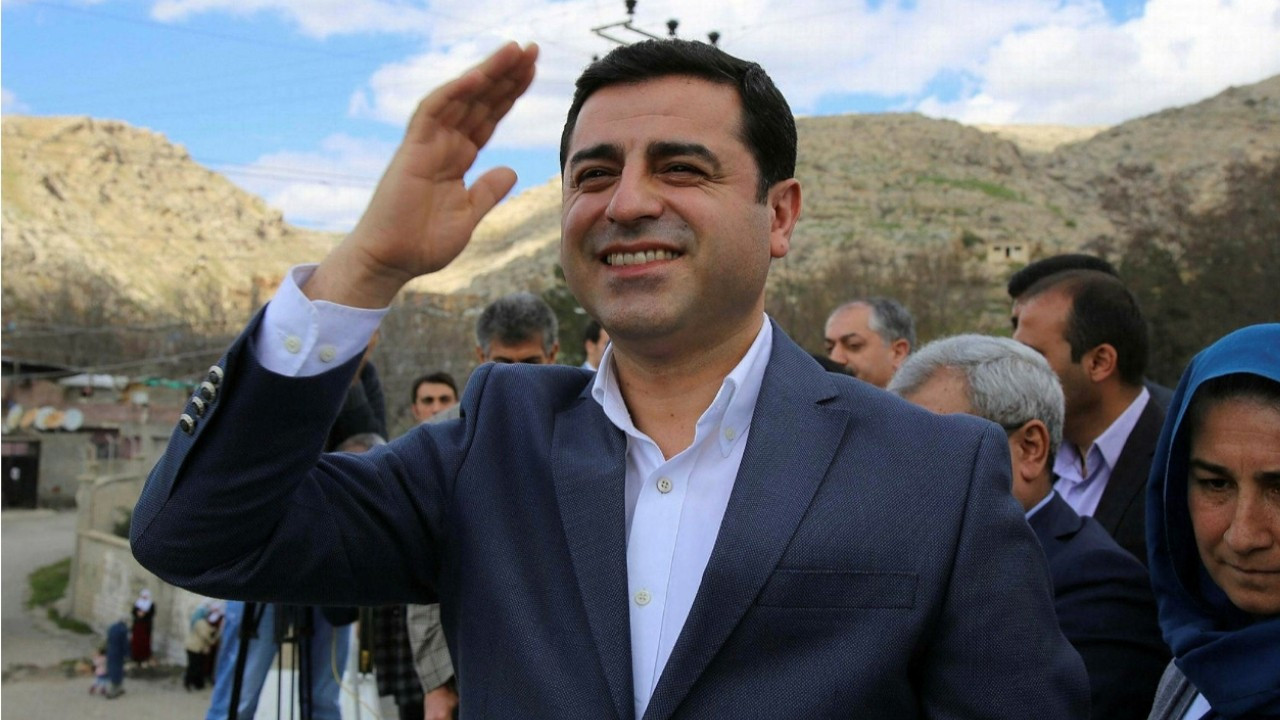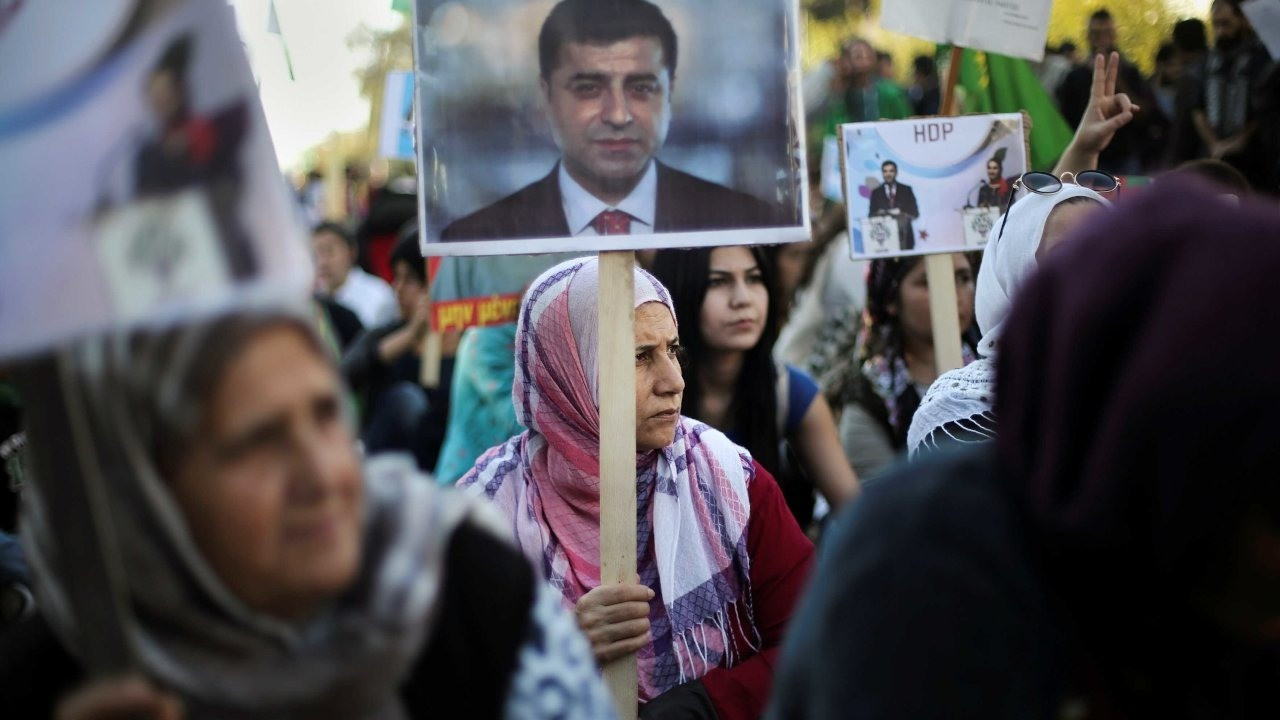Court manipulated ECHR's decision in translation for Kobane trial: Demirtaş
During the second hearing of the Kobane trial on May 18, former HDP co-chair Selahattin Demirtaş said that the court board has not yet put the official translation of the ECHR's 2020 decision on him in the case file, but instead manipulated certain sentences and only referred to them in the file.
Duvar English
The second hearing into the Kobane trial which indicts dozens of members of the Democratic Peoples' Party (HDP) began at the Ankara 22nd Heavy Penal Court on May 18.
Among the accused are also former HDP co-chairs Selahattin Demirtaş and Figen Yüsekdağ. A total of 108 people are charged with 37 counts of homicide and disrupting the unity and territorial integrity of the state over the 2014 Kobane protests.
While the government accuses the HDP of inciting violence, the HDP says that it was doing everything it can to prevent bloodshed via being in contact with government officials.
Demirtaş, who connected to the hearing via the video-conferencing system SEGBİS, deemed the trial a “political revenge case.”
“I am saddened that politicians who have made a sacrifice for the peace, democracy and freedom of Turkey are standing as defendants in this trial. This case is not the Kobane case, but instead a case of plot and political revenge against the HDP,” he told the court.
Demirtaş said that the court board has been implementing Erdoğan's “instructions” since they have received the indictment of the trial.
“Just 40 days before the European Court of Human Rights' (ECHR) decision was announced, Erdoğan said, 'Our judiciary will do what is necessary.' You are implementing these instructions since the indictment has reached you,” Demirtaş told the judges, urging them to withdraw from the case to “protect their honor.”
The ECHR in December 2020 ruled that Turkey must immediately release Demirtaş, saying the justification for his four years in prison was a cover for limiting pluralism and debate.
The Grand Chamber of the ECHR said Demirtaş had his rights violated under five different categories, including freedom of expression and liberty.
Demirtaş said that the court board has not yet put the official translation of the ECHR's decision on him in the case file, but instead manipulated certain sentences and only referred to them in the file.
“The court board has made forgery in the translation [of the ECHR decision]. In order to use the ECHR's decision against me, it made a manipulation and miswrote the most critical sentence in the ECHR's ruling while putting it down in the minutes of the proceedings. This is a heavy crime and has been proven in the documents,” Demirtaş said.
The renowned political further noted that the case file on him does not include the ECHR's immediate call for his release, deeming it as a “joke.”
“Your court, which does not recognize the ECHR's decision on me, has instead made references to other ECHR decisions in the preliminary proceedings report. In the file, there is no reference to Demirtaş decision [for release]. You are like a joke,” Demirtaş said.
“The official translation of the ECHR's decision has not been still put in the case file. Did you listen to [pro-government news channels] A Haber and ATV while making a reference to the ECHR ruling? The ECHR ruled for my immediate release. The most severe violation ruling of the Turkish judiciary has been given, and this is not binding for you?” he asked the court.
According to the ECHR's Grand Chamber, Demirtaş's pre-trial detention since Nov. 4, 2016 had sent "a dangerous message to the entire population" that sharply narrowed free democratic debate.
Demirtaş faces a sentence of up to 142 years in prison if convicted of being the leader of the Kurdistan Workers' Party (PKK) over his actions during the Kobane protests.
The ECHR said it saw no evidence in decisions on Demirtaş's detention that linked his actions and the alleged offenses.
"The Court concluded that the reasons put forward by the authorities for the applicant's pre-trial detention had merely been cover for an ulterior political purpose, which was a matter of indisputable gravity for democracy," it said in its finding on Dec. 22, 2020.

 Demirtaş questions missing $128 billion during Kobane trialPolitics
Demirtaş questions missing $128 billion during Kobane trialPolitics Secret witness statements form basis of 2014 Kobane case file against Demirtaş: LawyersPolitics
Secret witness statements form basis of 2014 Kobane case file against Demirtaş: LawyersPolitics Legal struggle for Demirtaş 'is also one for the truth'Politics
Legal struggle for Demirtaş 'is also one for the truth'Politics